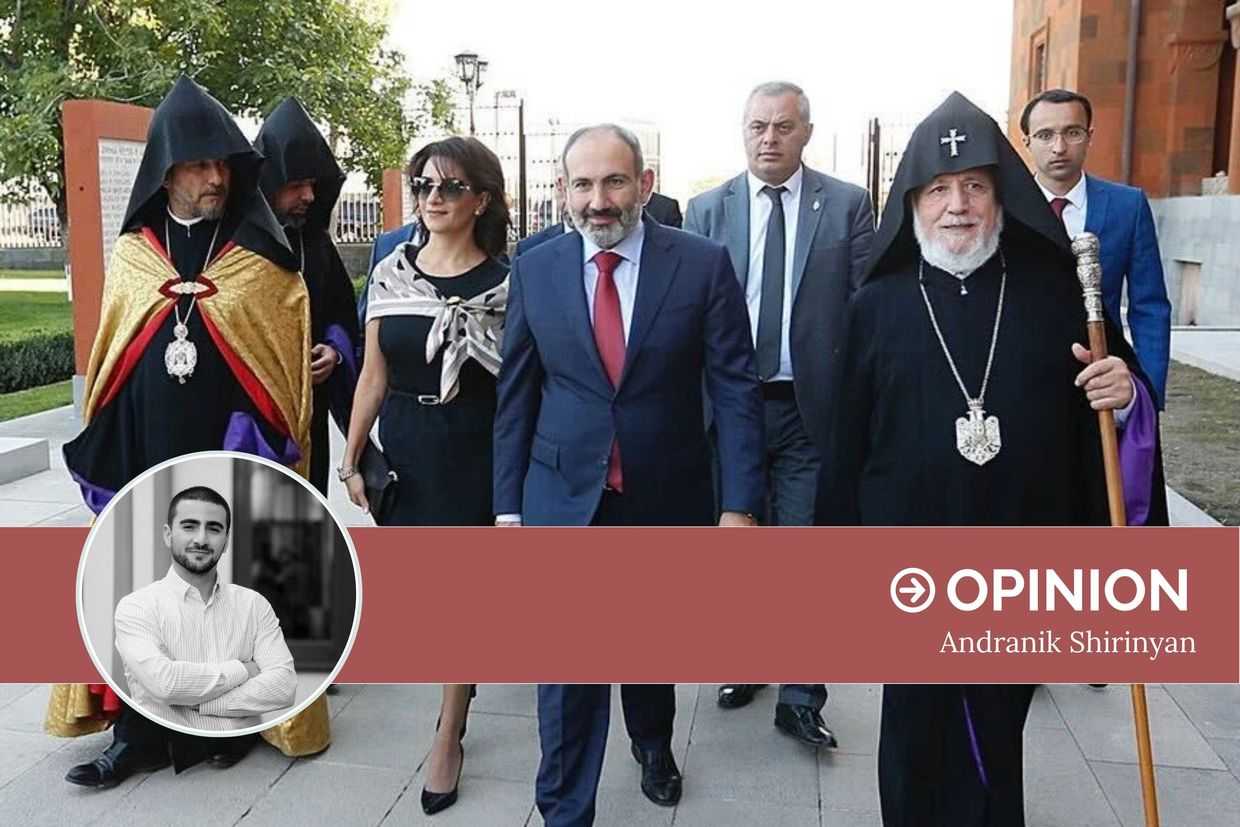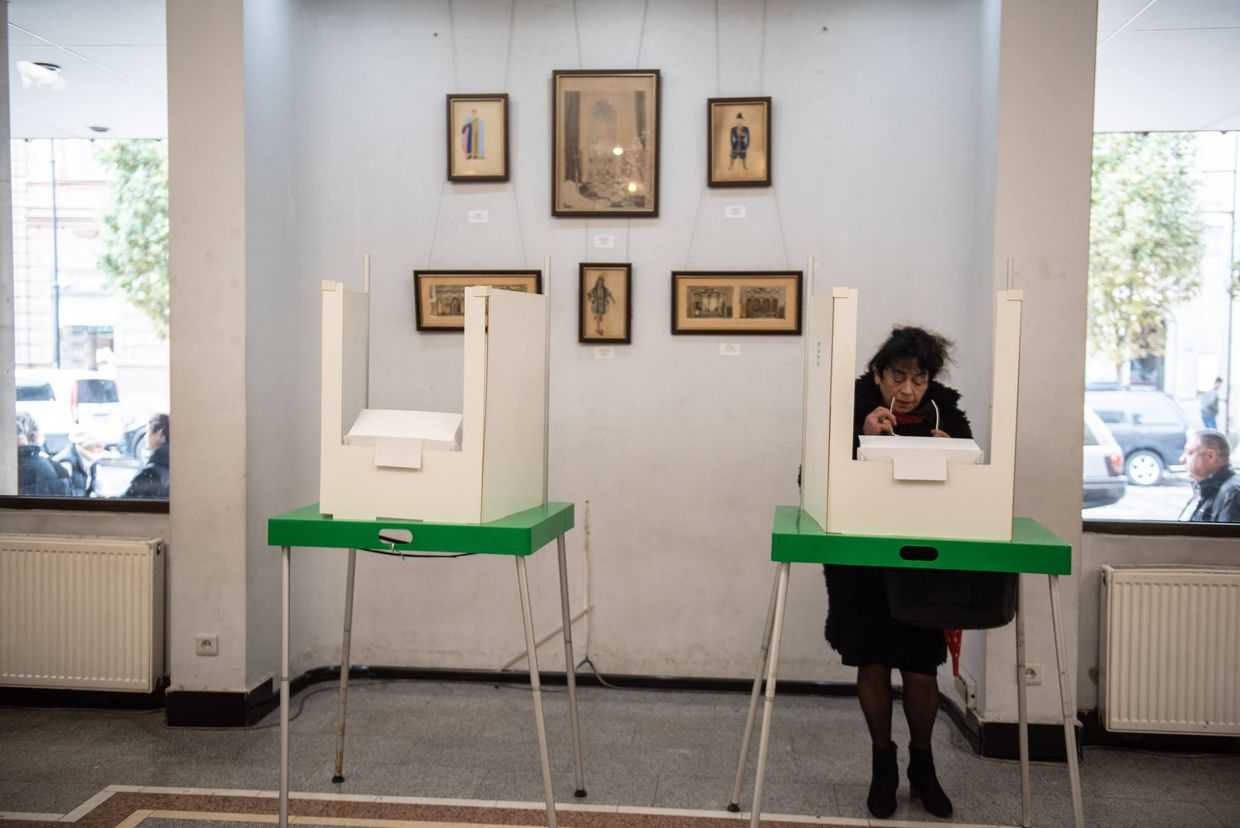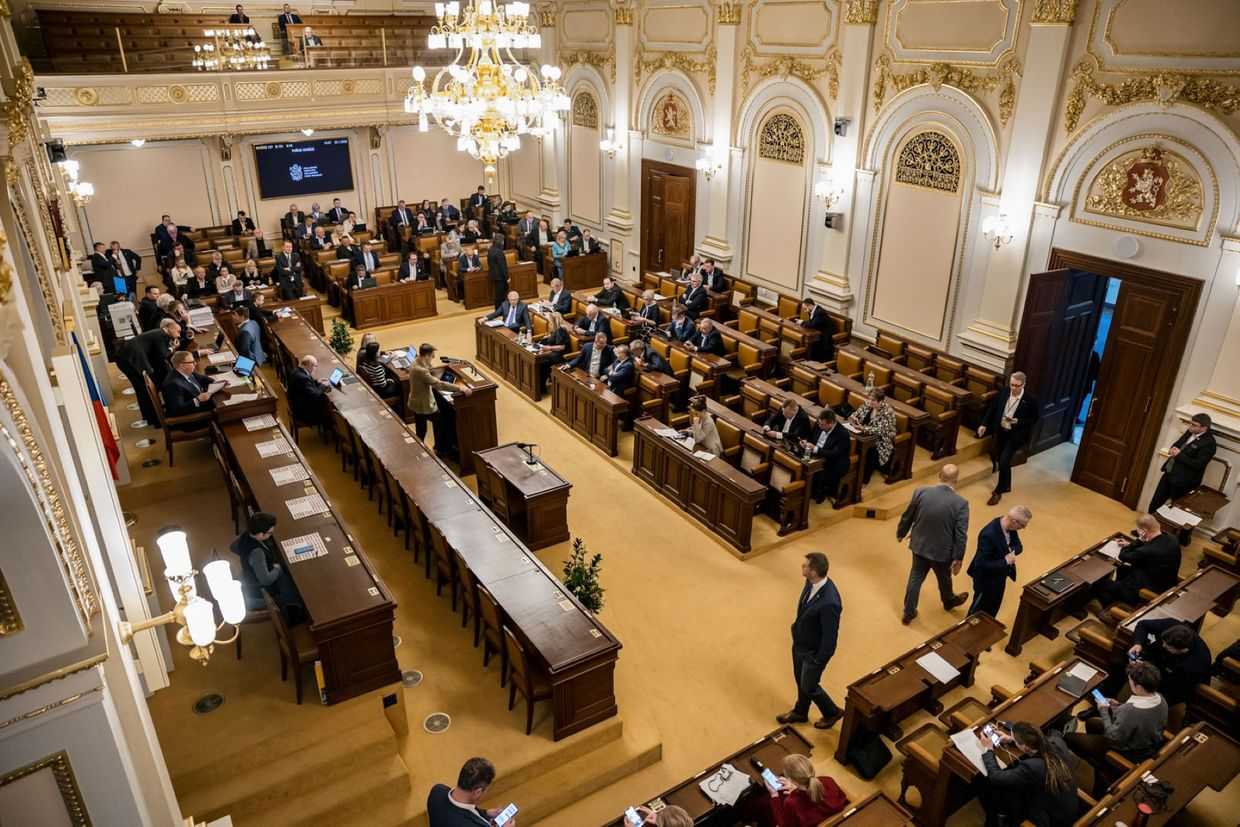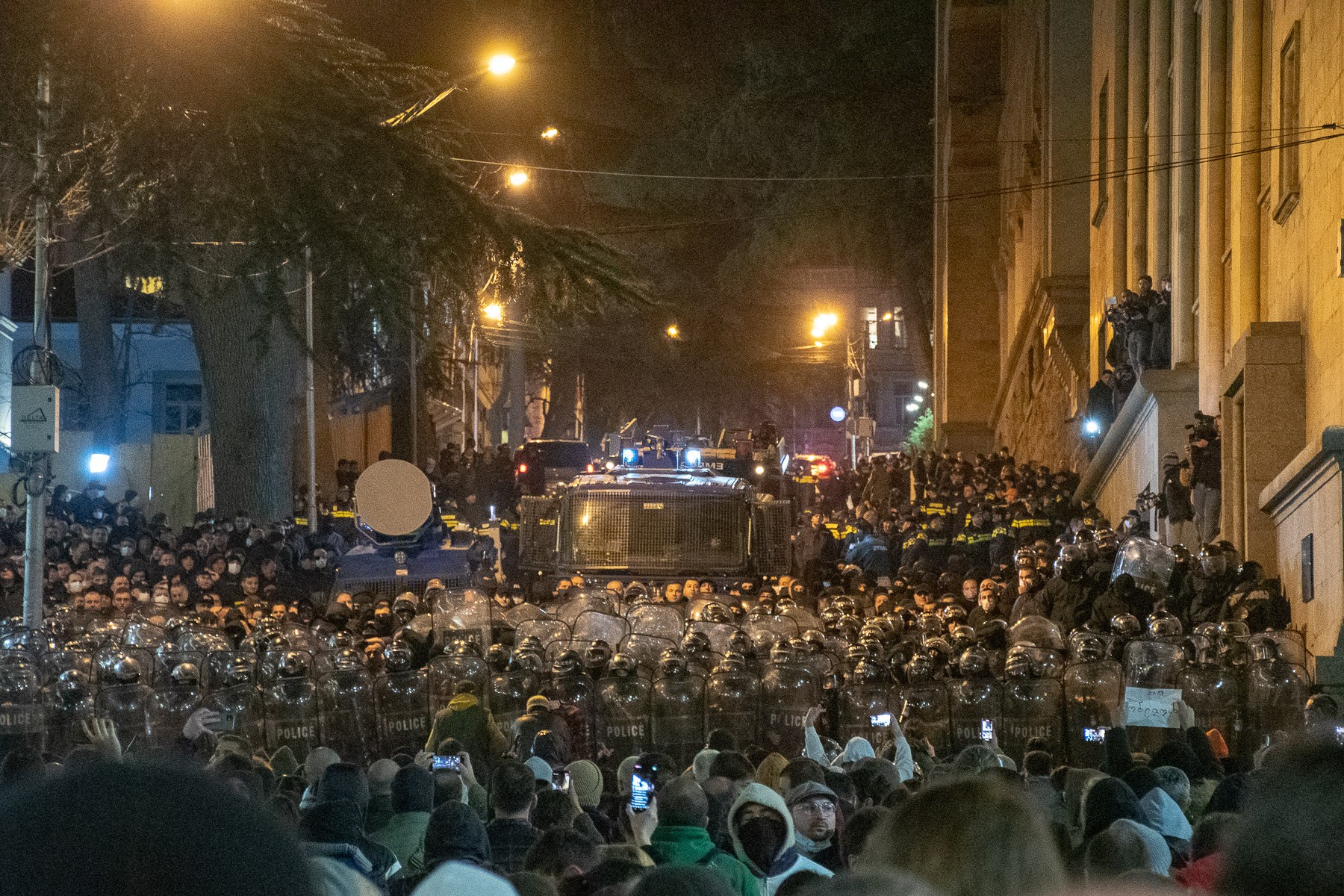
The ruling Georgian Dream party has passed the first version of the draft foreign agent law in its first reading in parliament. As lawmakers discussed the bill in their first plenary hearing, tens of thousands of people gathered outside to protest what has been widely condemned as a Russian-style law that threatens Georgia’s democracy.
The news that the bill passed its first reading on Tuesday evening was greeted by loud booing and whistling from the protesters outside. Riot police were immediately deployed as the bill was passed, deploying water cannons and pepper spray to clear the sides of the parliament.
A number of police officers were seen laughing amongst each other as they dispersed protesters. One officer deliberately targeted OC Media director Mariam Nikuradze with pepper spray, before laughing with colleagues.
Riot police deployed tear gas repeatedly throughout the night, with protesters continuing to return to confront them into the early hours of the morning.
The Georgian riot police deployed tear gas and closed in on thousands of people protesting the foreign agent law in front of the Georgian Parliament.
📰 https://t.co/Gqw3TSIoGQ pic.twitter.com/nUDnipPWkn
— OC Media (@OCMediaorg) March 7, 2023
Numerous arrests were made, including the leader of opposition party Girchi — More Freedom, Zurab Japaridze.
Both versions of the law would require civil society and media organisations to register as ‘agents of foreign influence’ if they receive over 20% of their income from abroad. Registered organisations would be subject to undefined ‘monitoring’ by the Ministry of Justice. Media organisations fear this could include forcing journalists to reveal sources or to hand over internal communications.
The bills have been widely condemned in Georgia, by opposition groups, civil society, as well as a broad array of businesses, sports teams, educators, and more.
They have also been harshly condemned by international organisations and rights groups, including the UN, and by the country’s Western allies. The EU has said the law would be ‘inconsistent’ with Georgia’s application to join the bloc.
As the bill was being discussed on Tuesday, the US Embassy said in a statement that the process raised ‘real questions about the ruling party’s commitment to Euro-Atlantic integration.’
‘Today is a dark day for Georgia’s democracy. Parliament’s advancing of these Kremlin-inspired laws is incompatible with the people of Georgia’s clear desire for European integration and its democratic development’, they said.
[Read on OC Media: Editorial | Only decisive action can save Georgia’s democracy]
Despite the ruling party insisting the law would be similar to US legislation regulating lobbying organisations, both versions resemble the Russian foreign agent law signed by Vladimir Putin in 2012 that has been used by the Kremlin to crush civil society and independent media there.
Before deciding which version to pass into law, the ruling party has vowed to send both bills for assessment by the Venice Commission, which examines if legislation is compatible with democratic and human rights norms.
However, on Tuesday, Mamuka Mdinaradze, the chair of Georgian Dream’s faction in parliament, said the party would only follow the commission’s recommendations ‘if there is at least something rational written there’.
Reacting to the protests against the bills, Georgian Dream chair Irakli Kobakhidze said that people had been misled with ‘disinformation’. He defended the legislation as necessary to reveal who was financing those who criticised the Georgian Orthodox Church.
President Salome Zurabishvili, who is currently in the US, said she would cancel her meetings at the UN in order to address the public. Zurabishvili has been outspoken in her criticism of the bills.
‘Procedural duplicity’
The process of the bills’ passage through parliament has also been widely criticised. Parliamentary security have frequently prevented both journalists and opposition lawmakers from doing their jobs. There have also been accusations from the opposition that members of the State Security Service were deployed against opposition MPs and journalists.
On Tuesday morning, the parliamentary bureau scheduled the bills’ first hearing for Thursday. However, not long after the protests outside parliament began to disband, the ruling party immediately began discussions of the first bill in the main chamber of parliament. Independent MP Roman Gotsiridze called the move an act of ‘procedural duplicity’.
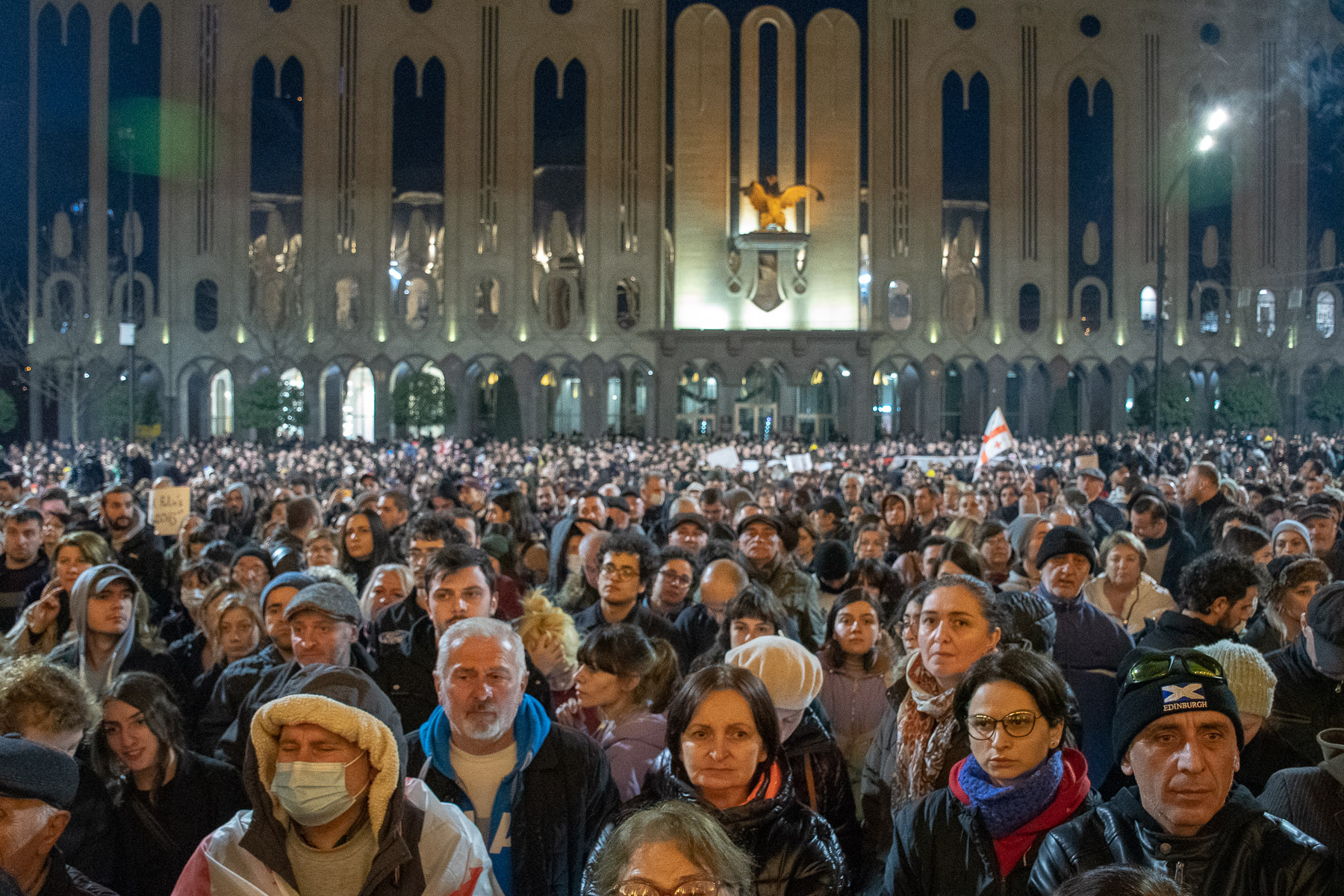
Opposition MPs were repeatedly blocked from entering committee hearings and even physically removed by parliamentary security.
On at least two occasions, ruling party MPs physically attacked opposition MPs opposed to the legislation. Before the bills were approved by the Legal Affairs Committee, the committee’s chair, Anri Okhanashvili, slapped United National Movement (UNM) leader Levan Khabeishvili in the face. Khabeishvili was subsequently dragged away by parliamentary security while Okhanashvili faced no consequences for his actions.
The media has also faced difficulties covering the process. Citing a ‘security regime’ surrounding the bills’ passage, parliament has refused to issue accreditation to journalists, including from OC Media, to enter the building. Those with permanent accreditation were also blocked from entering committee hearings. Several journalists with accreditation to be in parliament were also physically thrown out of the premises by parliamentary security.
Two journalists, from Publika and Tabula, were arrested during protests against the law on 2 March and now face charges of resisting and disobeying police.
Note: An earlier version of this article incorrectly stated that both versions of the law on foreign agents had passed their first hearing. The draft law on ‘transparency of foreign influence’ passed its first reading, while the law on ‘the registration of foreign agents’ was not discussed.




